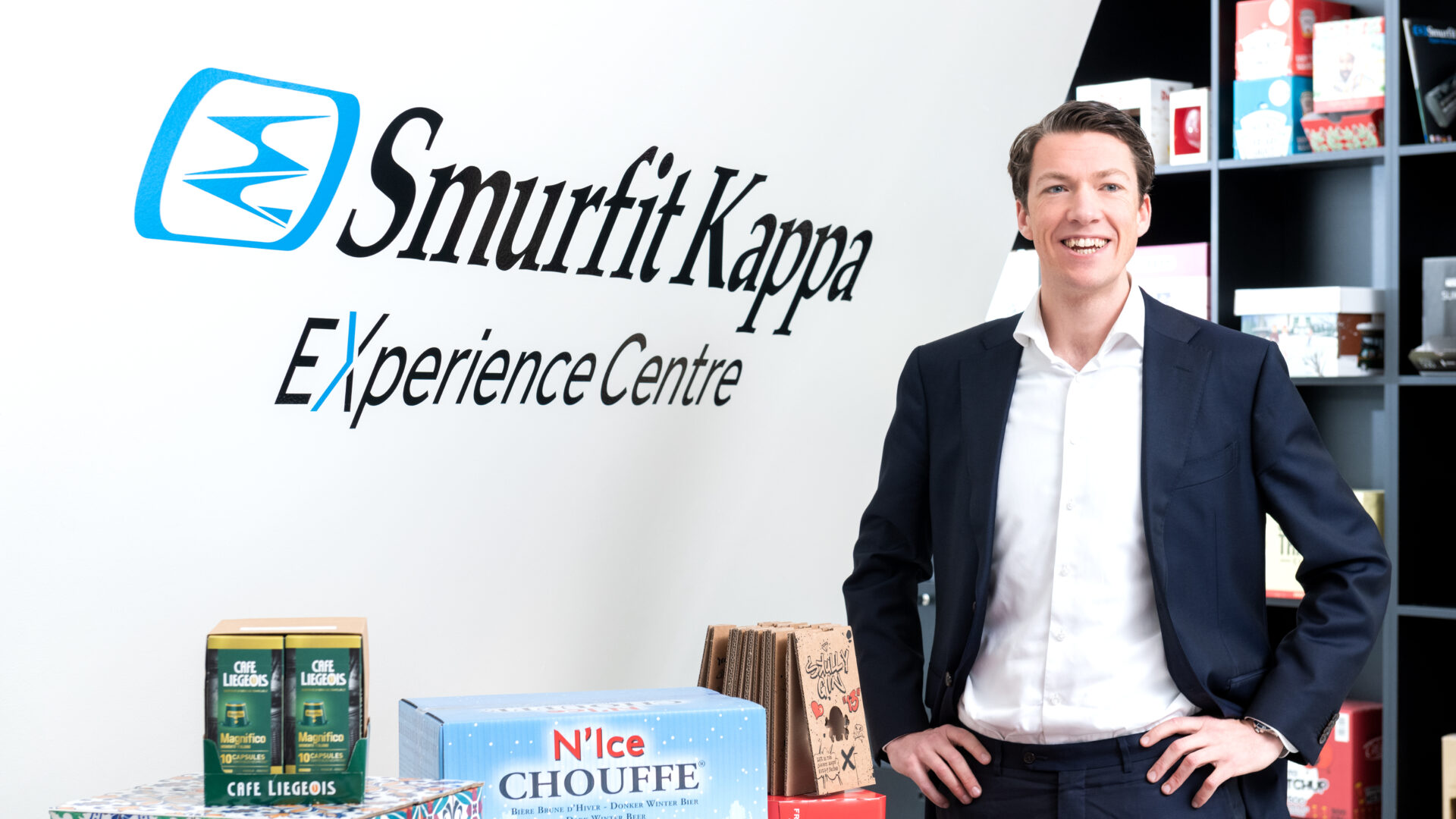
Career advice from Stefan Terink
Published on: 20 Jul 2021Stefan Terink started his career as a consultant at a consulting firm. After eight months, he resigned. “There are people who would call that unwise,” he says with a smile. Today, Stefan is the Marketing & Sales Director at Smurfit Kappa. “Personal development, growth opportunities, and challenges are important drivers for me. After 4.5 years at Smurfit Kappa, I’m far from having learned it all.”
Tip 1: Take the time to figure out what really makes you happy in your work
He’d only been working as a consultant for eight months when he realized that his first job was not what he was looking for. “The expectations I had weren’t being met. Knowing what really makes you happy in a job is crucial to being happy and to adding value to the company. This can be both substantive – ‘I’d really like to become General Manager at company X‘ – but also something like: ‘I want a lot of flexibility in my work’. Look for a role or organization where you can find plenty of what you’re looking for.”
Tip 2: If something isn’t what you hoped for, take action
“But that certainly doesn’t always have to be as ‘drastic’ as my tactic – taking another job. You can also take action within your own role or organization. Find a new challenge, launch a new project – anything. Just don’t wait for the situation to improve on its own because that rarely happens.”
Tip 3: Communicate your own needs for growth and development
“There are companies that very clearly outline a development path for their employees. At Smurfit Kappa, we do things differently. We would rather employees decide where they want to go, and then we do everything we can to facilitate that. As far as we’re concerned, development and growth starts with the employee. That works really well for me. In recent years, I’ve taken several courses at business schools that were tailored to my personal development needs. Take a step back now and then to get a broader perspective on what you’re doing, and to decide where you’re headed. If you know what your next step is, you can then figure out what you need to get there.”
“Especially for my generation, the infamous millennials, it’s essential to keep developing and keep learning. The key is to develop as broad a skill set as possible.” Stefan Terink, Marketing & Sales Director at Smurfit Kappa
Resume Stefan Terink
2018 – heden
Marketing & Sales Director, Smurfit Kappa
2018-2018
Marketing & Business Development Manager, Smurfit Kappa
2016-2017
PA to CEO Europa, Smurfit Kappa
2015-2016
PA to CEO Benelux, Smurfit Kappa
2015-2015
Consultant, Arthur D. Little
2013-2014
Business Analyst, Arthur D. Little
2013-2013
Consultant, Simon-Kucher & Partners

Tip 4: Manage your energy instead of your time
He once read it in a Harvard Business article and rediscovered it during a training course: how important it is to maintain a good balance between your energy sources. “Our professional and personal lives are increasingly intertwined, no one just works 9 to 5 anymore. You need a good sense of what your energy sources are like and strike the right balance. One day I’ll work late and be totally fine with that, while another day I’ll start with a long ride on my racing bike. By making intentional choices, you’ll be much more productive.”
Tip 5: Whatever you do as a manager, don’t micro-manage
One of the reasons Stefan called it quits in his first job was that his supervisor was a real micromanager. “I hope I don’t do that to other people. Of course, I provide clarity and go into detail to help people. If someone tells me they need additional support, of course I’ll make adjustments. But I prefer to give people as much freedom and ownership as possible to do their job. I myself have a lot of freedom in my role, which I think is fantastic.”
Tip 6: Don’t teach people a trick, offer insight instead
Novib used this metaphor with great success in the 1990s: don’t give people in developing countries fish; teach them to fish. Stefan has a similar strategy in mind for Smurfit Kappa. “I would like to see us move towards a learning organization, one that is constantly evolving. The market is asking new things of us, we’re engaging with new types of clients and stakeholder interests have changed. As a result, we’re facing different challenges as a company. I hope that, in the future, we’ll learn how to continuously reinvent ourselves, so we can better respond to changes around us.
Tip 7: Keep discovering and developing
He sees that continuous reinvention in himself, as well. “Especially for my generation, the infamous millennials, it’s essential to keep developing and keep learning. Who knows if my job will still exist in 20 years? The key is to develop as broad a skill set as possible. Attend a conference, read a book, take a course – and take that knowledge back to your organization. But most of all, make sure it’s inspiring for you.”
